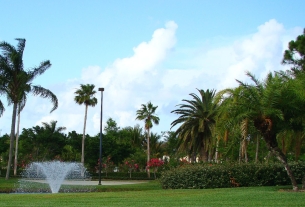Elcott Coleby, deputy director, Bahamas Information Services, recently corrected reports that The Bahamas Mortgage Corporation (BMC) will be building 127 “low-cost” homes for $60 million ($480,000 each). He assured taxpayers that they will be built for $10 million ($78,741 each).
The $60 million being borrowed from the National Insurance Board will apparently be issued in tranches of $10 million each. Presumably this means a total of 762 houses will be built with the funds borrowed from the country’s social security fund.
His rebuttal to the question that the government corporation is “technically bankrupt” suggests the BMC “has always been able to meet ‘all’ of its financial obligations and is not insolvent.”.”Additionally, the corporation has never defaulted on any of its principal and interest payments on its bonds and does not receive subvention from The Bahamas government.”
This is a very carefully crafted answer, but in the hope his refutation is a genuine desire to be transparent about taxpayer money, it would be useful if Coleby would be so kind as to answer the following questions: What is the total book value of mortgages held by the BMC? What is the current default rate of BMC mortgages? What is the total dollar amount of defaulted mortgages? What is the total debt of the BMC? While The Bahamas government has not provided a direct subvention, does it guarantee the bonds and other debt of the BMC? What is the balance of the sinking fund (an accrued fund intended to result in the programmed liquidation of a substantial exposure or bad debt which mitigates the perceived and actual risk)? Is the sinking fund money provided by the government/taxpayer? Are bonds paid off from earnings of the BMC at maturity or by issuing more bonds (debt)? If the BMC closed today, what would The Bahamas government be obligated to pay? Why doesn’t the BMC publish an annual financial report in the press like private sector financial institutions are forced to do?
Coleby closed his response by suggesting that the BMC “continues to provide a valuable public service by assuring that affordable public housing is within reach of an increasing number of Bahamians.” Realizing that political rhetoric is par for the course for most governing political party members, this point alone (providing a valuable public service) gives reason to pause, and here’s why: If reports are correct that approximately one third of the mortgages held by the BMC are in arrears, causing the ‘owners’ tremendous stress, the houses being provided are not ‘affordable’ and maybe the entire BMC ‘modus operandi’ needs a rethink to be considerate to ‘all’ taxpayers of today, and those who will have to foot the deferred debt in the years ahead.
This all begs the question: Is the Bahamas Mortgage Corporation a liberator, providing affordable ‘low-cost’ housing, or is it an albatross to mortgagees and taxpayers?
By Rick Lowe
